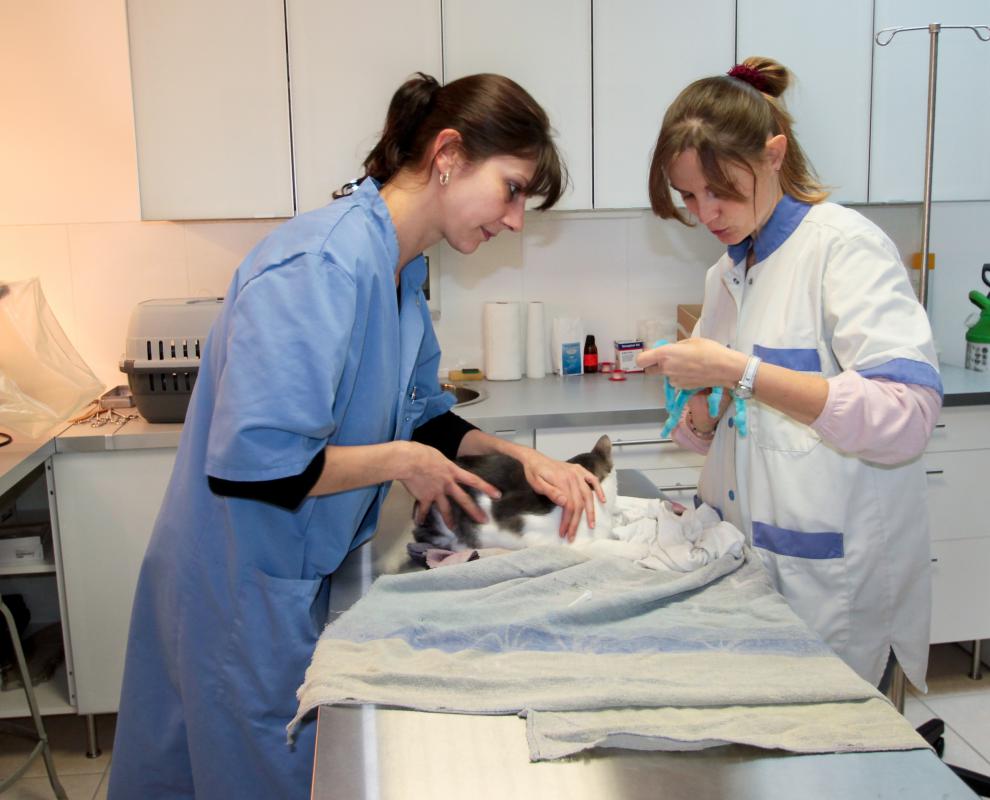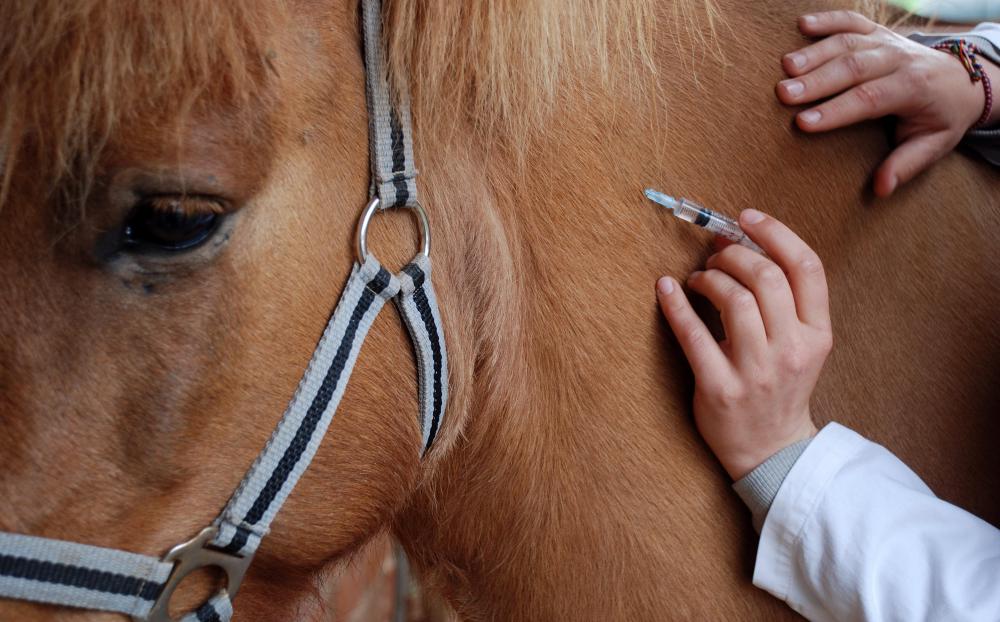At AllThingsNature, we're committed to delivering accurate, trustworthy information. Our expert-authored content is rigorously fact-checked and sourced from credible authorities. Discover how we uphold the highest standards in providing you with reliable knowledge.
What are Non-Core Vaccines?
In veterinary medicine, non-core vaccines are vaccines which could be considered optional, depending on the animal, the animal's lifestyle, and where the animal lives. This is in contrast with core vaccines, vaccines which are strongly recommended and sometimes even required by law. Generally, your veterinarian will evaluate your animal's individual case to determine which non-core vaccines are suitable, and he or she will discuss your options with you when offering vaccinations.
Vaccines can be classified as non-core for a variety of reasons. For example, some animals don't go outside, which means that they are exposed to far fewer diseases, and this would make vaccination for those diseases rather superfluous. Other animals board a lot, coming into contact with animals which may have conditions such as kennel cough, making vaccination against these diseases important for well-being. In other cases, vaccines are classified as non-core because the benefits of the vaccination do not outweigh the risks in the case of most animals.

As a general rule, veterinarians rely on guidelines issued by government agencies and professional associations to determine which vaccines are core, and which are non-core. These guidelines are different for different species, obviously, and they may include complicated sidebars which discuss specific situations in which non-core vaccines might be considered core vaccines. When assembling these guidelines, officials think about the incidence of a particular disease in a region, and the known risks of vaccinating for it.

When your animal is vaccinated, the vet may have a brief interview with you to determine which non-core vaccines should be recommended. If your animal is indoor-only, this will reduce the number of vaccine recommendations, while indoor-outdoor animals or working animals may require more vaccines. Certain vaccines may also be recommended in the event of travel; for example, if you take your horse to a region where the West Nile Virus is present, you should vaccinate for it before traveling.

When discussing non-core vaccines with your vet, be sure to ask about the potential risks of the vaccines, and ask for his or her honest opinion about whether or not your pet needs them. While it can be tempting to vaccinate for everything imaginable, this is often not necessary, and it could even be potentially harmful. If your pet does receive non-core vaccines, make sure that they are noted in the immunization record, especially if your pet boards, because this information may be needed at some point.
Frequently Asked Questions
What are non-core vaccines for pets?

Non-core vaccines are immunizations that are not essential for all pets but may be beneficial depending on an animal's exposure risk, lifestyle, and geographic location. They protect against diseases that are less common or only pose a risk in certain situations, such as Lyme disease or leptospirosis in dogs, and feline leukemia in cats.
How do veterinarians decide which non-core vaccines my pet needs?

Veterinarians consider several factors when recommending non-core vaccines, including your pet's age, breed, health status, lifestyle, and the prevalence of specific diseases in your area. They'll assess the risk of exposure to certain diseases and weigh it against the potential benefits and risks of vaccination to tailor a protocol that's best for your pet.
Are non-core vaccines safe for all animals?
Non-core vaccines, like all medical treatments, carry some risk of side effects, but they are generally safe for most animals. Veterinarians evaluate each pet's individual health and risk factors before administering these vaccines. Mild reactions can occur, but serious side effects are rare. Always discuss the risks and benefits with your vet.
Can non-core vaccines be given to pets with chronic health issues?
Pets with chronic health issues may still receive non-core vaccines if their veterinarian determines the benefits outweigh the risks. The vet will carefully consider the pet's overall health, the severity of their condition, and their risk of exposure to the disease in question before making a recommendation.
How often should my pet receive non-core vaccines?
The frequency of non-core vaccinations varies based on the specific vaccine, the pet's risk of exposure, and their previous immunization history. Some may be administered annually, while others might be given every few years. Your veterinarian will provide a schedule that aligns with the latest guidelines and your pet's individual needs.
Do indoor pets need non-core vaccines?
Indoor pets may still require certain non-core vaccines, as some diseases can be transmitted through indirect contact or are airborne. For example, the feline leukemia vaccine may be recommended for indoor cats if they occasionally escape or are exposed to new cats that might carry the virus. Consult with your vet for personalized advice.
AS FEATURED ON:
AS FEATURED ON:















Discussion Comments
@csalls - I didn't know that vaccines could protect animals for so long. If that's the case, I can definitely see why they could be considered dangerous, especially when overused.
Since studies have shown links to behavioral and medical issues related to some vaccines, unnecessarily or excessively vaccinating your pet could indeed do more harm than good.
How could vaccinating for everything be harmful to your animal, as the article says?
Post your comments